About Conference
This field involves the development of electronic components and systems that go beyond traditional circuitry. It includes innovations in semiconductors, integrated circuits, sensors, and other electronic devices. Miniaturization, increased processing power, and energy efficiency are key focuses in advanced electronics. Computational devices refer to devices that perform computations or process information. This can range from traditional computers and servers to more specialized devices like supercomputers, quantum computers, and even artificial intelligence systems. The goal is to enhance computational capabilities, speed, and efficiency. The synergy between advanced electronics and computational devices has led to remarkable advancements. For example, the development of powerful processors, advanced memory systems, and efficient algorithms has significantly improved the performance of electronic devices. These technologies find applications in various fields such as healthcare, communication, transportation, entertainment, and more. Think about smartphones, smart appliances, wearable devices, autonomous vehicles, and medical imaging equipment – all made possible through the integration of advanced electronics and computational power.Despite the incredible progress, there are challenges like addressing power consumption, ensuring data security, and exploring the ethical implications of AI. As technology evolves, researchers and engineers are continually pushing the boundaries of what's possible. This conference aims to provide an opportunity and platform to present and discuss recent advances in the field of advanced communication and computational Devices intended to independently and also as a confluence of ideas.
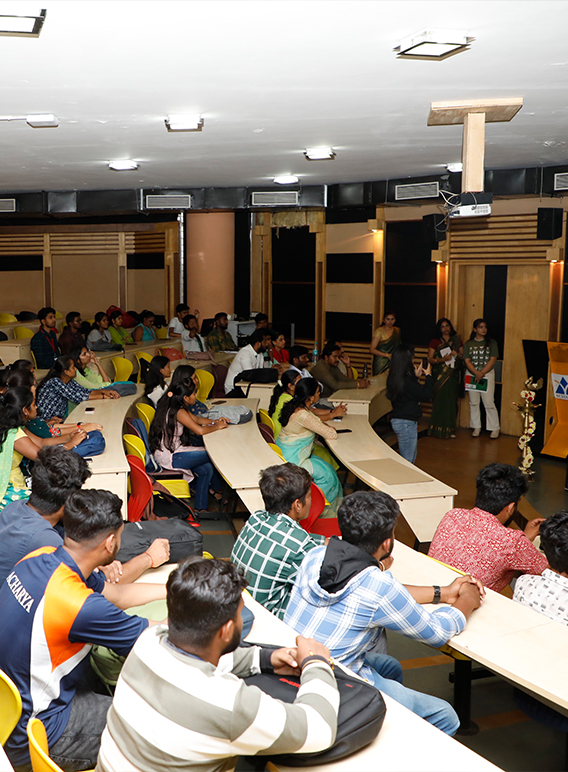
Important Dates
| Event Details | Dates |
|---|---|
| Submission Deadline | 20st Sept 2024 |
| Acceptance Notification and Registration Starts | 25th Sept 2024 |
| Final Call for Camera Ready Paper | 27th Sept 2024 |
| Last date of Registration | 30th Sept 2024 |
| Conference Dates | 04th - 05th Oct 2024 |
Message From Chairs
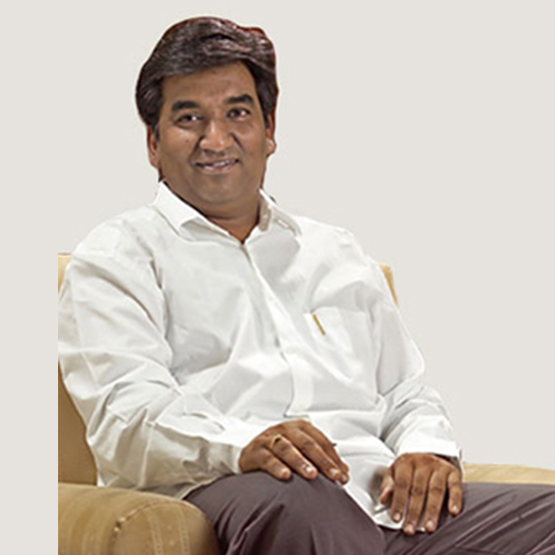
Shri B Premnath Reddy,
Chairman, Acharya
At Acharya, we believe in 'fueling the quest for knowledge'. In doing so, our commitments pave the way for the individual professional success which culminates in benefiting the society. Creating a vast state-of-the-art academic infrastructure, putting together best teaching talent, equipping with every required learning aid ensure that students at Acharya get the best in academics. Sporting, cultural and extra-curricular facilities are put in place so that the students enjoy their campus life. The wide range of Acharya academics encompasses Engineering, Management, Technology, Life Sciences, Pharmacy, Nursing, Teaching, Journalism, Communication, Fashion Design, etc. and has drawn aspiring youth from every part of India and across the globe. Acharya Institutes is truly emerging as the nurturing ground for leadership. It has become synonymous with practical and industry-focused education. The fact that Acharyans, today, are a familiar face in the industry and the same is a demonstration of its total commitment to excellence in academics.
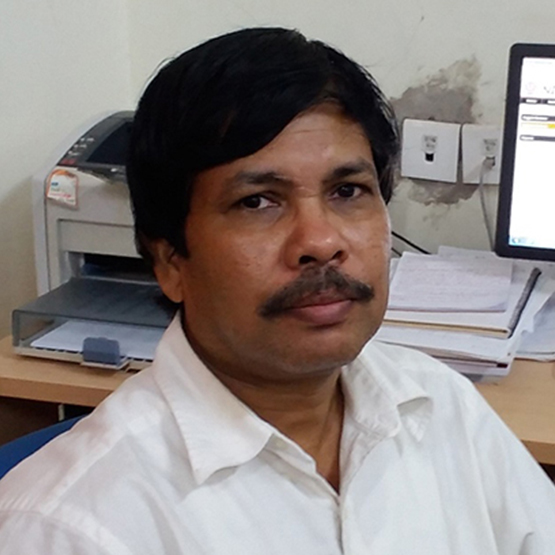
Dr. Prasanna Kumar Sahu,
Dean Faculty & Professor, Electrical Engineering Department, National Institute of Technology, Rourkela, OdishaPrasanna Kumar Sahu (Senior Member, IEEE) received the Ph.D. degree from Jadavpur University, Kolkata, India, in 2007.,He is currently a Professor with the Department of Electrical Engineering, National Institute of Technology Rourkela, Rourkela, India. He has authored or coauthored of several national and international journal, book chapter, and conference publications. His research interest includes nanoelectronic devices, VLSI, and communication systems., Prof. Sahu is a Fellow of IE (India).
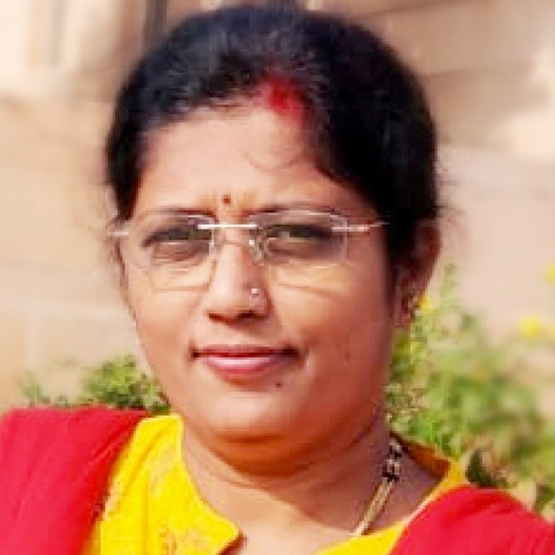
Dr. Rajeswari,
Dean Academics, Professor & Head of the Department of Electronics & Communication Engineering, AIT
The conference aims to bring together experts, researchers, and practitioners from around the world to share their insights, exchange knowledge, and discuss the latest advancements in the fields of communication and computational devices. This event provides a unique platform for networking, collaboration, and staying abreast of cutting-edge developments. Your participation in this conference will undoubtedly contribute to the success of the event and further enhance our department's reputation on the global stage. Let us collectively make this conference a platform for fostering collaboration, sharing knowledge, and advancing our collective understanding of the rapidly evolving fields of communication and computational devices.
Prof. Devasis Pradhan,
Asst. Director of Research, AIT
Asst. Director of Research, AIT
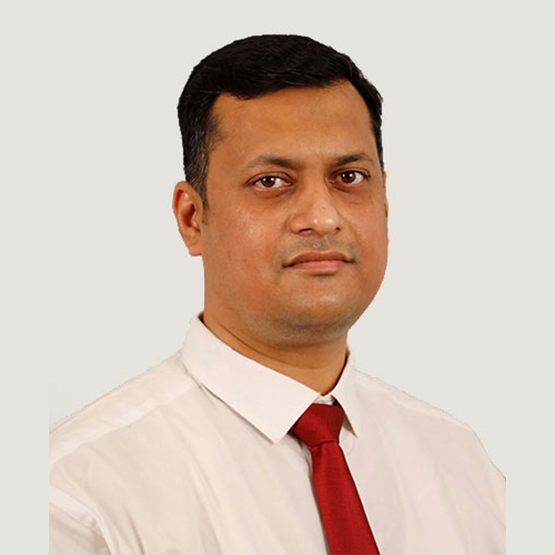
Prof. Devasis Pradhan,
Assistant Director of Research Acharya Institutes, AIT Bangalore-560107
He is working as Assistant Director of Research at Acharya Institute of Technology, Bengaluru, Karnataka . His current research includes the effectiveness of 5G-Green Communications, mmWave antenna design, UWB antennas, and their implementation. He has published 70 research papers in eminent international journals & conferences, 4 books, and 3 edited books with a reputed publishing house. He is a co-editor on Editorial Board & peer-reviewed 8 international journals and a committee member in a reputed organization. He has authored and co-authored 15 book chapters. He has been a technical committee member and reviewer for reputed internal conferences such as IEEE, Grenz Society, IFERP, etc. He has received 6 national awards in academic and research work from various governing bodies associated with the government of India. He is also an active member of ISTE, IEEE, ATMS, and other professional associations toward professional growth.


Keynote Speakers
Dr. Jaume Anguera,
1st IEEE Fellow, Founder and CTO at Ignion
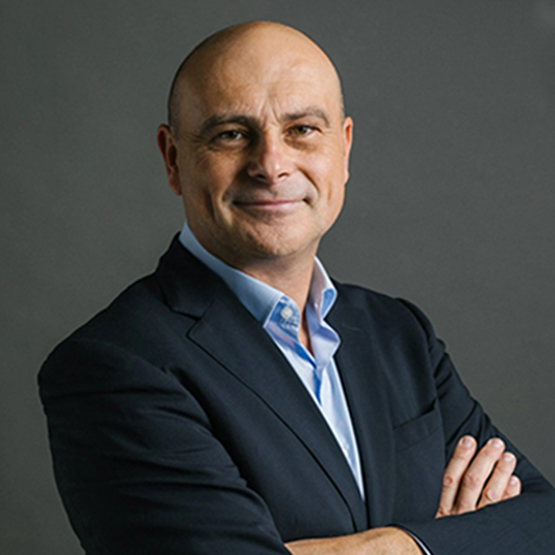
Dr. Jaume Anguera,
1st IEEE Fellow, Founder and CTO at Ignion
Associate Professor at Universitat Ramon Llull, IEEE Distinguished Professor United Kingdom.
Dr. Jaume Anguera, IEEE Fellow, is co-founder and CTO of the technology company Ignion (Barcelona, Spain) and Associate Professor at Ramon LLull University and member of the Remote-IoT research group. In 1999, he was a researcher at Sistemas Radiantes, Madrid, Spain developing multiband antenna arrays. From 1999-2017, he was with Fractus, Spain, as R&D manager leading projects on antennas for base station and handsets. Between 2003 to 2006, he was assigned to Fractus in South Korea to head up the research team. Under his technical leadership, the company secured major contracts with companies such as Samsung and LG. Since 2017 he is with Ignion with the role of CTO where he leads the R&D activity of the company creating new products, envisaging new technologies, fostering synergies with partners, and providing technology strategy to scale the business of the company. Inventor of more than 150 granted patents, most of them licensed to telecommunication companies. Among his most outstanding contributions is that of inventor of Antenna Booster Technology, a technology that fostered the creation of Ignion. Many of these products have been adopted by the wireless industry worldwide, to allow wireless connectivity through a miniature component called an antenna booster. Author of more than 250 scientific papers and international conferences (h-index 50). Author of 7 books. He has participated as principal researcher in more than 22 research projects financed by the Spanish Ministry, CDTI, CIDEM, and the European Commission for an amount exceeding 7M$. He has received several national and international awards. He has directed the master/doctorate thesis to more than 130 students. His biography appears in Who’sWho in the World and Who’sWho in Science and Engineering. Associate editor of the IEEE Open Journal on Antennas and Propagation and vice-chair of the working group “Software and Modeling” at EurAAP.
Dr. Stefan Mangold, founder
General Manager of Lovefield Wireless

Dr. Stefan Mangold, founder
General Manager of Lovefield Wireless, Switzerland
Stefan Mangold is the founder and General Manager of Lovefield Wireless. His work covers many aspects of wireless communication, with focus on protocols and system aspects for wireless LAN, visible light communication, and the Internet-of-Things. Stefan Mangold has been with Walt Disney Research until 2016, where he worked on connected toys, theme parks, and mobile networks. Before Disney, Stefan worked at Swisscom in Switzerland and before that, at Philips North America, USA. Stefan received his Dr.-Ing. / PhD. degree in electrical engineering / telecommunications from RWTH Aachen University in Germany. Since 2007, he teaches a class on Wireless Networking and Mobile Computing in the Computer Science Department of ETH Zurich, Switzerland



Committee Members
- Shri B M Reddy, President, JMJ Education Society
- Shri B Premnath Reddy, Chairman, Acharya Institutes
- Smt. Shalini Reddy, Executive Director, Acharya Institutes
- Mr. Krishna Basani, Managing Director, Acharya Institutes
- Shri C B M Bhooshan ES to Chairman, Acharya Institutes
- Prof. Marigowda C K, Vice Principal, Acharya Institute of Technology
- Dr. Prasanna Kumar Sahu Dean Faculty, National Institute of Technology, Rourkela, Odisha
- Dr. Rajeswari, Principal, Dean Academics, Professor & Head of the Department of Electronics & Communication Engineering, AIT, Bangalore
- Dr. Hla Myo Tun Professor, Department of Electronic Engineering, Yangon Technological University, Yangon, Myanmar
- Dr. Triwiyanto , Associate Professor ,Politeknik Kesehatan Negeri Surabaya Kementerian Kesehatan Indonesia
- Dr. Mingliang Gao, Associate Professor of Shandong University of Technology
- Prof. Ilya Sychugov, RIT-KTH, Sweden
- Prof. Nguyen Truong Khang, TDTU, Vietnam
- Prof. Pham Tan Thi, HCMUT, Vietnam
- Prof. José Machado da Silva, Univer of Porto
- Prof. Zoran Jaksic, Uni. of Belgrade, Serbia
- Dr. Olga Jaksic, Uni. of Belgrade, Serbia
- Prof. Z. Brankovic, Uni. of Belgrade, Serbia
- Prof. Sergey Selischev, MIET, Russia
- Dr. Venugopal V Veeravalli, University of Illinois at Urbana-Champaign
- Dr. Alagan S. Anpalagan, Toronto Metropolitan University (Ryerson University), Canada
- Dr. Stefan Mangold, General Manager of Lovefield Wireless, Switzerland
- Dr. Rizky Ema Wulansari, Universitas Negeri Padang, Indonesia
- Dr. Tee Tze Kiong, Universiti Tun Hussein Onn Malaysia, Malaysia
- Dr. Thanatip Chankong, Chiang Mai University, Thailand
- Dr. Adekunle Moshood Abioye Abubakar Tafawa Balewa University, Nigeria
- Dr. Susmita Das, Professor, Department of Electrical Engineering, National Institute of Technology, Rourkela, India
- Dr. K P Pradhan, Indian Institute of Information Technology, Design and Manufacturing (IIITDM) Kancheepuram
- Dr. Preetam Kumar, Indian Institute of Technology Patna, India
- Dr. D Ganesh Rao, Dean, Circuit Branches, AIT
- Dr. S. K. Murthy, Patent Counsel, Intel Technologies, India
- Dr. Sachin Rondiya, Indian Institute of Science, Bangalore
- Dr. H. V. Ravish Aradhya, R V College Of Engineering, Bengaluru, India
- Prof. Abhijit Biswas, University of Calcutta
- Prof. Mohammad Hasan, AMU, Aligarh
- Prof. Sanket Goel, BITS Pilani Hyderabad
- Prof. Angsuman Sarkar, Kalyani University, WB
- Prof. K. Srinivasa Rao, KL University, India
- Dr. Arun Kumar Agrawal, SOA, BBSR, India
- Dr. Avisankar Roy, Assoc. Prof., Dept. of ECE, HIT Haldia
- Dr. Mehdi Ghesari, SIMTS, Chennai, India
-
International Advisory
-
National Advisory
- Prof. Devasis Pradhan Dean Research and Development, Acharya Institute of Technology, Bangalore-560107
- Dr. Alessandro Bruno, Assistant Professor (Tenure Track) in Computer Science -RTDB, Faculty of Communication, IULM
- Dr. Celso Barbosa Carvalho, Professor de Engenharia Elétrica e Computação -Federal University of Amazonas / Brazil
- Dr. Bibhu Dash, University of the Cumberlands Williamsburg, KY USA
- Dr. Sameeh Ullah, llionis University,IL, USA
- Dr. Sujatha B M, Professor, AIT
- Dr.Jayalaxmi H, Associate Professor, AIT
- Dr. Lakshmikanth S, Associate Professor, AIT
- Dr. Raghunath B H, Assistant Professor, AIT
- Dr. Krupaprasad K R, Associate Professor, AIT
- Dr. Nagapushpha K P, Assistant Professor, AIT
- Prof. Sumangala J, Assistant Professor, AIT
- Dr. Mariappan, Assistant Professor, AIT
- Dr. Nataraju A B, Assistant Professor, AIT
- Prof. Jagadish M, Assistant Professor, AIT
- Dr. Raghunath B H, Assistant Professor, AIT
- Dr. Nagapushpa K P, Assistant Professor, AIT
- Mrs. Trupti Ravikumar Kumbhar, AIT
- Dr. Su Mon Aye, Yangon Technological University (Pathein)
- Dr. Aye Than Mon Yangon Technological University (Pathein)
- Dr. Zaw Min Naing Department of Research and Innovation, Ministry of Education, Myanmar
- Dr. Zin Thu Thu Lin, Yangon Technological University, Yangon,Myanmar
- Dr. Asha C N Associate Professor,AIT
- Dr. Pranita Niraj Palsapure,Assistant Professor, AIT
- Prof. Trupti Kumabhar, Assistant Professor, AIT
- Dr. Nikita Kar Chowdhury, Assistant Professor, AIT
- Prof. Munnavar N, Assistant Professor, AIT
- Dr. Krupaprasad K R, Associate Professor, AIT
- Prof. Veena Sanath Kumar, Assistant Professor, AIT
- Prof. Roopa S, Assistant Professor, AIT
- Prof. Mohan N , Assistant Professor, AIT
- Prof. Kiran Kumar , Assistant Professor, AIT
- Prof. Shadakshari , Assistant Professor, AIT
- Dr. Triwiyanto , Associate Professor ,Politeknik Kesehatan Negeri Surabaya Kementerian Kesehatan Indonesia
- Dr. Mingliang Gao, Associate Professor of Shandong University of Technology
- Prof. Ilya Sychugov, RIT-KTH, Sweden
- Prof. Nguyen Truong Khang, TDTU, Vietnam
- Prof. Pham Tan Thi, HCMUT, Vietnam
- Prof. José Machado da Silva, Univer of Porto
- Prof. Zoran Jaksic, Uni. of Belgrade, Serbia
- Dr. Olga Jaksic, Uni. of Belgrade, Serbia
- Prof. Z. Brankovic, Uni. of Belgrade, Serbia
- Prof. Sergey Selischev, MIET, Russia
- Dr. Venugopal V Veeravalli, University of Illinois at Urbana-Champaign
- Dr. Alagan S. Anpalagan, Toronto Metropolitan University (Ryerson University), Canada
- Dr. Stefan Mangold, General Manager of Lovefield Wireless, Switzerland
- Dr. Rizky Ema Wulansari, Universitas Negeri Padang, Indonesia
- Dr. Tee Tze Kiong, Universiti Tun Hussein Onn Malaysia, Malaysia
- Dr. Thanatip Chankong, Chiang Mai University, Thailand
- Dr. Adekunle Moshood Abioye Abubakar Tafawa Balewa University, Nigeria
- Dr. Susmita Das, Professor, Department of Electrical Engineering, National Institute of Technology, Rourkela, India
- Dr. K P Pradhan, Indian Institute of Information Technology, Design and Manufacturing (IIITDM) Kancheepuram
- Dr. Preetam Kumar, Indian Institute of Technology Patna, India
- Dr. D Ganesh Rao, Dean, Circuit Branches, AIT
- Dr. S. K. Murthy, Patent Counsel, Intel Technologies, India
- Dr. Sachin Rondiya, Indian Institute of Science, Bangalore
- Dr. H. V. Ravish Aradhya, R V College Of Engineering, Bengaluru, India
- Prof. Abhijit Biswas, University of Calcutta
- Prof. Mohammad Hasan, AMU, Aligarh
- Prof. Sanket Goel, BITS Pilani Hyderabad
- Prof. Angsuman Sarkar, Kalyani University, WB
- Prof. K. Srinivasa Rao, KL University, India
- Dr. Arun Kumar Agrawal, SOA, BBSR, India
- Dr. Avisankar Roy, Assoc. Prof., Dept. of ECE, HIT Haldia
- Dr. Mehdi Ghesari, SIMTS, Chennai, India
-
International Advisory
-
National Advisory
Call For Papers
Acharya Institute of Technology, invites you to associate with us for the upcoming Conference, ICACCD -2024, a two day Springer Co-sponsored International Conference to be held on 04th -05th October, 2024. ICACCD -2024: 1st International Conference on Advance Electronics & Computational Devices team with pleasure invites you to contribute with an original research paper, to this blind and peer-reviewed conference. Accepted papers will be submitted for inclusion into the Springer book series (Scopus Indexed) “Algorithms for Intelligent Systems” (https://www.springer.com/series/16171)
- Computer and Communication Networks,
- Advanced Communication Technologies,
- Communication Securities in 5 G,
- Solid-state Circuits,
- Components and Packaging Technologies,
- Antennas and Wireless Propagation,
- Optical Communication,
- Electromagnetic,
- Signal Processing,
- Digital electronics,
- Speech and Language Processing,
- Electronic Materials,
- Microwave and Mobile Computing,
- Photonics and Plasma Science,
- Quantum Electronics,
- Biomedical Instrumentation,
- VLSI,
- Integration of AI with other technologies.
- Big Data Analytics and Cloud Computing - Networks,
- IoT and Cyber Security
- Computational Intelligence
- Blockchain Technology and Applications
- 3-D Printing and Scanning
- Deep Learning/ Artificial Intelligence and Machine Learning Applications
- Geographic Information Systems and Applications
- Augmented Reality/ Virtual Reality
- Quantum Computing and Informatics
- Knowledge Engineering y
- Computational Biology & Bioinformatics
- Data, Text, Web Mining & Visualization
- Advanced Energy Materials,
- Materials Testing and Evaluation,
- Computational Materials,
- Composite and Hybrid Materials,
- Soft & Smart Materials,
- Materials for Photocatalysis and Photo electro catalysis,
- Materials for Dye-sensitized Solar Cells,
- Electro active Materials,
- Nano engineering and its Applications,
- Biosensor and Bioelectronic Materials,
- Emerging Areas of Materials Science,
- Damage mechanics,
- Design of materials and components Environmental effects,
- Metal-matrix composites,
- Processing and Manufacturing,
- Reinforcement Materials.
Plagiarism Policy
Plagiarism Policy: Article Should be checked through Turnitin with less than 10% of similarity Index
- Step 1: Corresponding author will receive an acknowledgment email containing Paper-Id within one week of paper submission.
-
Step 2: To ensure the quality of the manuscript, the Supporting Team will check for the following:
- Plagiarism (as per Policy
- Quality and Novelty
- Scope of the Manuscript with the theme of the Conference
- Step 3: The manuscript satisfying the above said points, will be sent for review, and the manuscript not satisfying the above-said points will be notified as either “Revise and Resubmit “or “Rejected”
- Step 4: Three reviewers will be assigned to each manuscript and will undergo a double-blind review process.
- Step 5: Based on the review comments, the organizing committee will send the decision to the authors Accept/Accept with Revision/ Reject
- Step 6: If out of three reviewers, the manuscript is accepted by two reviewers, the manuscript will be sent to the Conference chair for further process.
- Step 7: After the final confirmation for acceptance of the manuscript from ICAECD Editorial Board, author(s) will be notified through acceptance mail.
Acceptance Notification
After Acceptance
- Please Note that after Acceptance Notification you cannot withdraw your paper from ICACCD-2024.
- Paying Registration Fee: Calculate the registration fee according to your type of authorship (Academician includes Professor and Faculty, Student include: Research Scholars, PG, and UG Student) and make payment using Online Payment available at home page of the website.
- Do not forget to send scanned copy of the online payment receipt on email:
-
Mailing the following items in .zip / .rar format to
- The Camera-ready Article files, both in prescribed MS Word and PDF format.
- Copy of filled in Registration Form.
- Scanned copy of filled in Copyright Form.
- Proof of studentship.
- Copy of registration fee receipt of Online Payment.
Submission Guidelines
The papers should be in the following formats: Word Format Page limit for Camera Ready papers is 10 pages
Registration
Interested participants may register their names using the form at the bottom of the page. The confirmation regarding participation will be sent through email. To ensure publication of a paper in the Proceedings, at least one author has to register by submitting a normal registration fee within the deadline as indicated below.
| Category | Registration Fees |
|---|---|
| Foreign Delegates (Research Scholar/ Students Academicians/ Scientist as an Authors) | 150 USD |
| Indian Authors (Academicians/ Scientist/ Research Scholars/ Students) | Rs. 6000 |
| Industry Experts | Rs. 7000 |
| Listeners (The e-Certificate will be provided at the end of the conference) | Rs. 1000 |
Apart from the registration for publication in springer conference proceeding, presentation of paper is mandatory.
Mode of Payment: NEFT/RTGS/IMPS (FOR REGISTRATION)
| Bank Information | Details |
|---|---|
| Name of the Account Holder With Designation: | Acharya Institutes CMS A/C |
| Account Type: | Savings |
| Account Number: | 002294600002503 |
| Bank Name: | YES BANK |
| IFSC Code: | YESB0000022 |
| MICR Code: | 560532002 |
| Branch: | Kasturba Road, Bangalore |
Our Institutes
Acharya Institute of Technology is committed to excel in teaching, learning, research and developing professionals who make a difference globally. Faculty at Acharya is not only involved in teaching but they also pursue research to push the boundaries of human knowledge. The students are motivated to pursue academic research by taking up bigger challenges. Acharya Institute of Technology is the ultimate destination, located in the south Indian city ‘Bangalore’, known as “Silicon Valley of India”. Acharya Institute of Technology was established in the year 2000 and offers 14 undergraduate programmes, 4 postgraduate programmes and 11 research programmes. The diverse academic programmes attract nearly 5000 students from 60+ countries as well as from all parts of India. Acharya is proud of having a large notable alumnus around the world.
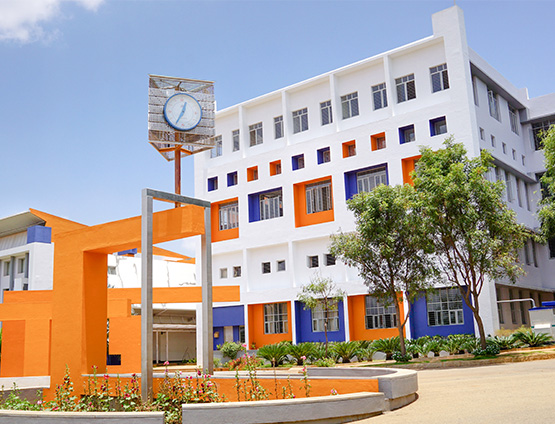
About ECE Department
The department of ECE, Accredited by NBA, offers full time UG programme in Electronics & Communication Engineering with an intake of 120, and a Research Centre recognized by Visvesvaraya Technological University (VTU), Belagavi. The department has qualified and experienced faculty members with specialization in Communication Engineering, Signal Processing, VLSI & Embedded Systems. The ongoing research activities include the areas of Signal Processing, VLSI, Smart Antenna System, Robotics, Artificial Intelligence, Machine Learning, Communication & Networking. The department facilitates well equipped laboratories strengthened by software like Cadence for VLSI Design, MATLAB. Development boards available are used by UG/ PG students for projects and research activities. The department facilitates skill development activities like workshops / summer- winter schools/ internships/contests in collaboration with industries like Candella, Texas, Sandlogic, IBM, AWS etc., The department has MOU with institutes across the globe for student/faculty exchange programmes. To enhance the knowledge on current trends, the department has conducted various Faculty Development Programmes, Workshops on DSP Algorithms and Architectures, VLSI, Sensors and Robotics sponsored by Indian Society for Technical Education (ISTE) and All India Council for Technical Education (AICTE) during the previous years.
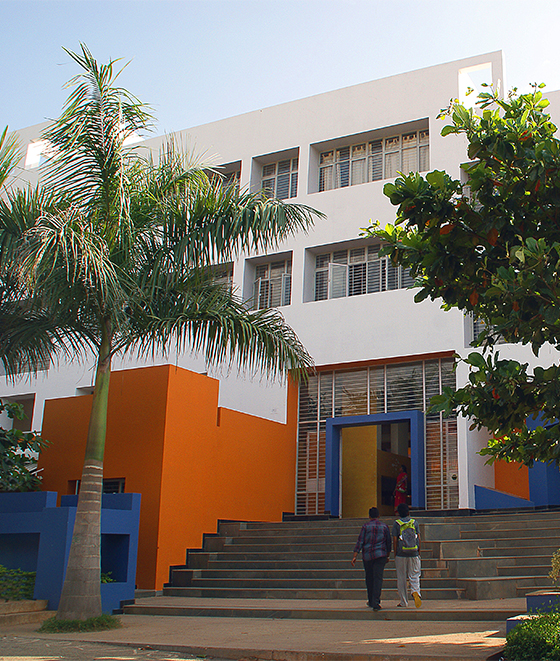
Media Partners
